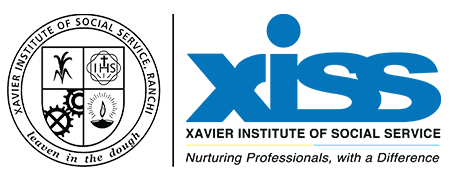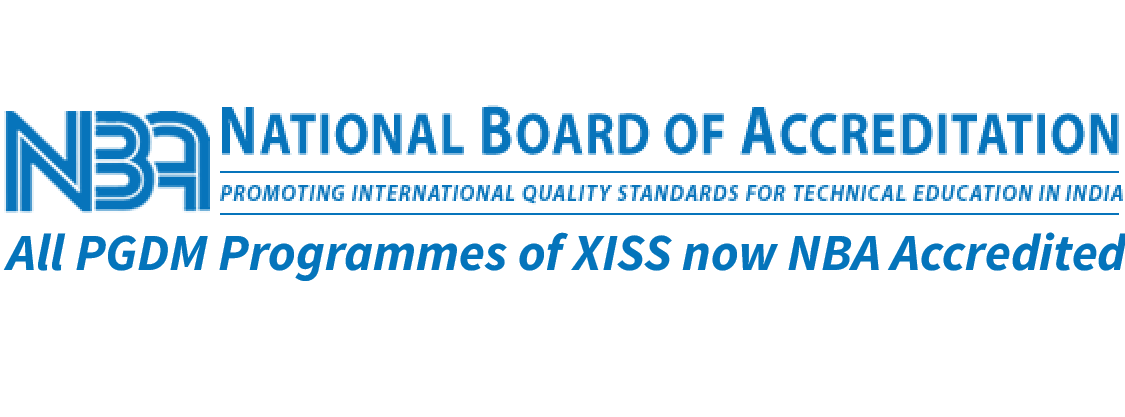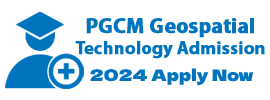Programme Overview

Dr. Mahua Banerjee
Head, PGDM
(Information Technology)
Success is defined by the level of awareness to transform information into actionable insights. Multiple sources are simultaneously offering plethora of information related to every possible phenomenon of our existence. This has unlocked world of opportunities in front of the business houses to offer customized solutions to every stakeholder. Information Technology is pivotal in managing these radical changes amidst business houses to cater the transformation. Post Graduate Program in Information Technology (PGPM-IT) is designed to offer the essential skills for a professional during the Industrial Revolution 4.0. dominated by Artificial Intelligence and Data Analytics. The job market has an escalated demand for professionals with right skills in these domains for efficient Business Analytics.
The Program is carefully curated with right blend of Managerial exposure and Technical expertise. Loaded with all the necessary ingredients of a Post Graduate Management Program, it empowers a professional to extract business insights from raw data using open source software packages like R, Python etc. It offers deep understanding of business data exploration by offering hands on implementation of machine learning and deep learning models.
The experienced faculty members of the Program are consistently engaged in Research and Consultancies to bring the very best and the most recent in the market to the classrooms. Frequent interactions with Industry Stalwarts and live exposure to real time problems lodge the stepping stone of a successful professional since the first day of the Program.
Post Graduate Program in Information Technology makes you capable to take data driven decisions. This is the only trait for a successful Manager in contemporary job scenario. Due to its interdisciplinary approach, the program is equally suitable to anyone with passion to succeed, grow and deliver in this competitive world irrespective of undergraduate specialization.
Programme Educational Objectives (PEOs)
Program educational objectives are broad statements that describe the career and professional accomplishments that the program is preparing its graduates to achieve within a few years of graduation as follows:
-
To develop managers with strong ethical values capable of playing a major role in business organisations in particular and the society at large.
-
To equip the students with the right attitude, knowledge, and skills in areas of business management and information technology necessary to succeed in the data-intensive VUCA environment.
-
To develop future information technology leaders, who can negotiate and navigate complex and changing IT landscape and its impacts on business management.
-
To encourage the quest for higher education, research, and development.
-
To make sustained efforts for the holistic development of students, enabling them to excel in their professional careers in information technology management and related disciplines.
Programme Outcomes (POs)
After successful completion of the programme, students will be able to:
-
Deliver value-based leadership
-
Apply knowledge of management theories and practices to solve business problems.
-
Analyse, evaluate and make data-driven business decisions.
-
Understand and manage the complexities of the modern business value chain and organizational transformations in the rapidly changing technological environment.
-
Conceptualize and operationalize business research problems and be stimulated to undertake higher education in the field of management and information technology.
-
Understand, analyse and communicate global, economic, legal and ethical aspects of the business.
-
Lead themselves and various stakeholders in the achievement of organisational goals and contribute effectively to a team environment.
Course Structure for PGDM ( Information Technology )
Trimester – I |
|
|---|---|
|
Business Communication |
|
|
Business Statistics |
|
|
Data Analysis using Excel |
|
|
Information Technology for Management |
|
|
Managerial Economics |
|
|
Mathematical Foundation for Management |
|
|
Principles and Practices of Management |
|
|
Professional Social Work |
|
|
Urban Social Field Work |
|
|
Term Viva |
|
|
Overall Performance |
|
Trimester – II |
|
|---|---|
|
Business Modeling using Excel |
|
|
Ethics for Computer Professionals and Cyber Laws |
|
|
Foundation and Basics of Organizational Behaviour |
|
|
Human Resource Management |
|
|
Macro Economics |
|
|
Marketing Management |
|
|
Operations Research |
|
|
Programming Techniques and Problem Solving |
|
|
Urban Social Field Work |
|
|
Term Viva |
|
|
Overall Performance |
|
Trimester – III |
|
|---|---|
|
Database Management System |
|
|
e-Business |
|
|
Essentials of Organizational Behaviour |
|
|
Internet Marketing |
|
|
Management Information System |
|
|
Principles of Accounting |
|
|
Production and Operation Management |
|
|
Research Methodology |
|
|
Societal Analysis and Justice Concern |
|
|
Urban Social Field Work |
|
|
Term Viva |
|
|
Overall Performance |
|
Trimester – IV |
|
|---|---|
|
Elective 1 |
|
|
Elective 2 |
|
|
Elective 3 |
|
|
Elective 4 |
|
|
Elective 5 |
|
|
Artificial Intelligence for Business |
|
|
Environmental Management |
|
|
Project Management |
|
|
Soft Skill and Personality Development |
|
|
Total Quality Management |
|
|
Progress in Summer Internship Programme |
|
|
Term Viva |
|
|
Overall Performance |
|
Electives |
|
SECTION – A |
|
|
Cloud Computing |
|
|
Data Warehouse Data Mining |
|
|
Object Oriented Programming |
|
|
Enterprise Resource Planning |
|
|
Software Engineering |
|
|
Python Programming |
|
SECTION – B |
|
|
Financial Management |
|
|
Human Resource Development |
|
|
Management of Banking |
|
|
Change Management |
|
|
Entrepreneurship and New Ventures |
|
Trimester – V |
|
|---|---|
|
Elective 6 |
|
|
Elective 7 |
|
|
Elective 8 |
|
|
Elective 9 |
|
|
Elective 10 |
|
|
Business Analytics |
|
|
Business Ethics |
|
|
Corporate Social Responsibility |
|
|
Summer Internship Programme |
|
|
Overall Performance |
|
Electives |
|
SECTION – A |
|
|
Human Resource Information System |
|
|
Operating System: Concepts and Principles |
|
|
Software Project Management |
|
|
Machine Learning for Data Driven Decision Making |
|
|
Geographic Information System |
|
|
Internet Technologies |
|
SECTION – B |
|
|
Customer Relationship Management |
|
|
Financial Analysis, Planning and Control |
|
|
Retail Management |
|
|
Risk Management and Insurance |
|
|
Social Banking and Micro Finance |
|
Trimester – VI |
|
|---|---|
|
Elective 11 |
|
|
Elective 12 |
|
|
Elective 13 |
|
|
Elective 14 |
|
|
Business Policy and Strategic Management |
|
|
Overall Performance |
|
Electives |
|
SECTION – A |
|
|
Cyber Threats and Vulnerabilities |
|
|
Data Science with R |
|
|
Data Structure |
|
|
Economics of Information and Network Industries |
|
|
Internet of Things (IoT) in Business |
|
|
Knowledge Management |
|
SECTION – B |
|
|
Logistics and Supply Chain Management |
|
|
Money Banking and Finance |
|
|
Organizational Behaviour-Organizational Level Concepts |
|
|
Security Analysis and Portfolio Management |
|
|
Strategic Management for Sustainable Development |
|





